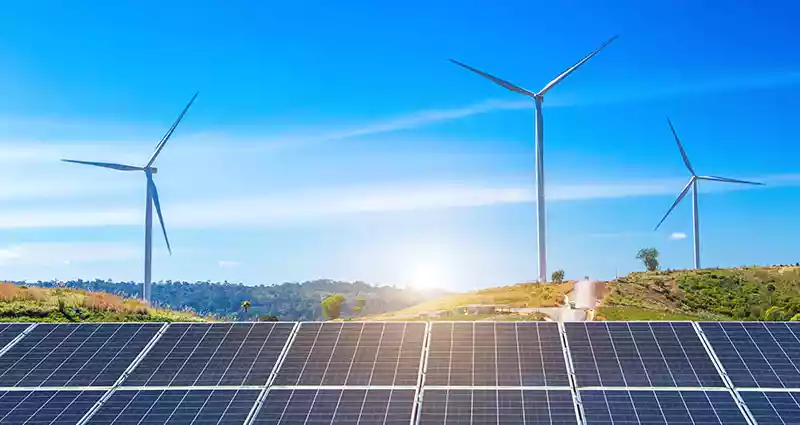
Econet Wireless Zimbabwe, the country’s leading telecoms and technology company, has taken the lead in driving sustainability and reducing its carbon footprint by announcing plans to invest in 500 solar-powered base stations in the coming 24 months.
“We are planning to install 499 Solar sites in the network in the next two years in order to ensure green energy and energy efficiency for our operations,” Econet said in its 2022 Annual Report.
The Zimbabwe Stock Exchange-listed company recently pledged to achieve carbon neutrality for its entire business and sprawling supply chain by 2030.
This was after the group had installed over 100 solar base stations last year. The push for solar power alone has reduced the amount of carbon dioxide emitted from Econet’s base stations from 41,77 tCO2e in 2020 to 38,07 tCO2e in 2021.
“Total Scope 1 emissions amounted to 28,314 tCO2e in 2020 and reduced by 21.3% to 22,295 tCO2e in 2021. This reduction was due to the decrease in diesel used at base stations and increased use of grid electricity as a source of energy,” read part of the company’s annual report.
“From 2021 to 2022 Scope 1 emissions increased by 20, 4% from 22,295 tCO2e to 26,833 tCO2e due to increased diesel usage at base stations and our vehicle fleet. The increase in diesel usage at base stations in 2022 was caused by increased load shedding and a longer turn-around time to resolve distribution faults by the utility.”
Econet noted that the decrease in utility electricity use from 2021 to 2022 resulted in a 6.2% reduction in Scope 2 emissions from 39,755 tCO2e to 37,285 tCO2e, which was a 6.23% decrease. It said the decrease was attributable to the ongoing deployment of solar photovoltaic and lithium-ion battery upgrades on its base stations.
“Econet recognises that management of the environment is an integral part of successful business operations. We are committed to achieving high standards of environmental care and compliance with relevant local statutes as well as alignment with applicable international standards,” the company added.
- Mboweni mentors emerging entrepreneurs, calls for integrity in business
- Mboweni mentors emerging entrepreneurs, calls for integrity in business
- Zim tycoons elevate offspring to key roles
- Zim tycoons elevate offspring to key roles
Keep Reading
The company is also implementing strategies for e-waste monetisation and recycling as the business transforms its operations toward energy efficiency, waste management and conformance with United National Sustainable Development Goals and Climate Change Agenda Key Strategic Intentions.
Since 2018, Econet has been reducing physical recharge cards in the market for both legal compliance and its own desire to reduce waste while promoting electronic recharge method. The initiative has been integrated into the company’s waste management plan, working in collaboration with the Environmental Management Agency to reduce physical recharging by 80%.
“We are committed to integrating sound environmental practices into our business operations and ensuring our subcontractors are compliant with all statutory obligations and best practice conformance,” the company said.
Early this year, Econet joined the GMSA climate change task force, which enables the company to benchmark its climate change initiatives with other telecommunication companies internationally.
The GSMA task force is an industry wide plan to achieve net-zero emissions by 2050 in line with the Paris Agreement which aims to limit global warming to well below 1.5 degrees Celsius, compared to pre-industrial levels.
In 2021, Econet became a member of the United Nations Global Compact (UNGC), voluntarily committing itself to science-based climate change targets.







